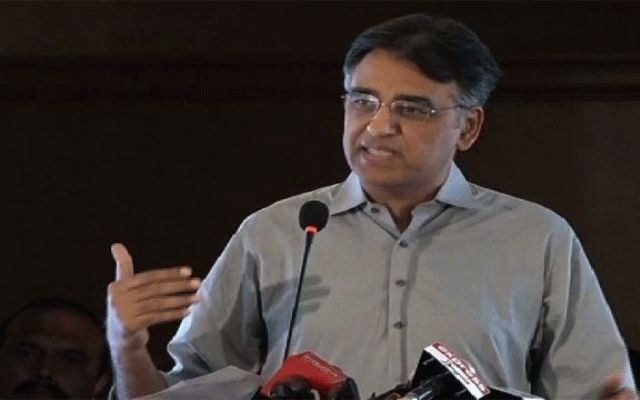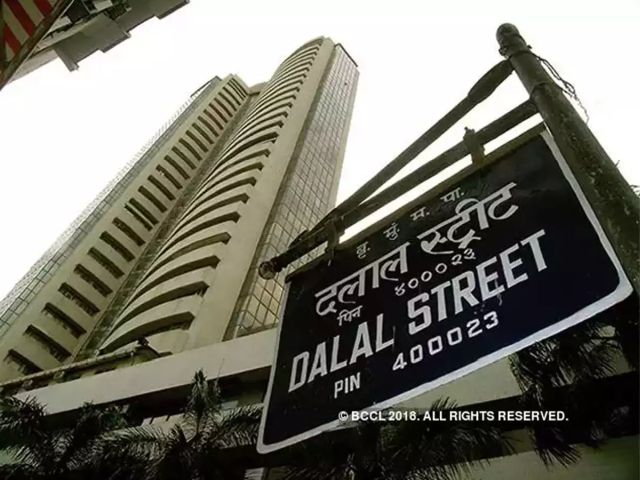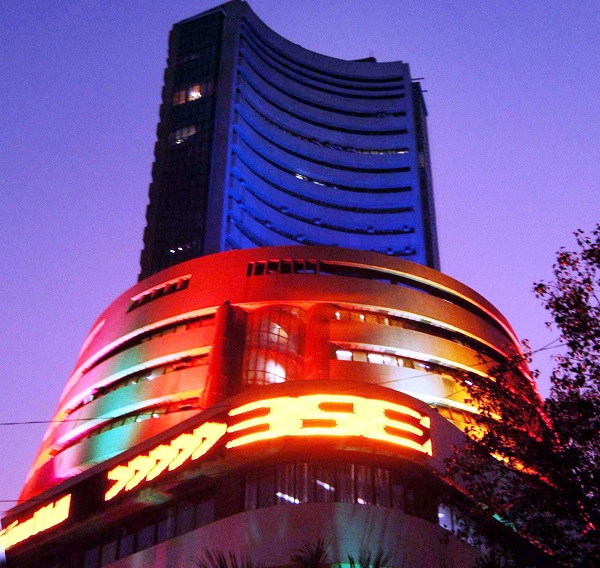
by admin | May 25, 2021 | Investing, Muslim World

Asad Umar
Islamabad : Pakistani Finance Minister Asad Umar has proposed changes in the initial plan of Special Economic Zones (SEZs) under the China-Pakistan Economic Corridor (CPEC) in order to make them more investor friendly.
In a meeting of Economic Cooperation Committee (ECC) here on Monday, Umar directed the Board of Investment, a department under the Prime Minister’s Office which is responsible for making policies to mobilise and facilitate local and foreign investment, to approve application of companies interested in investing in the SEZs in 45 days from the previous 90 days, reports Xinhua news agency.
Chaired by Prime Minister Imran Khan, the purpose of the meeting was to deliberate upon the country’s economic situation, and form a future strategy for the stability and revival of economy.
Both China and Pakistan have agreed to make CPEC focus on industrial cooperation after the first five-year early harvest period since 2013.
The joint venture in the SEZs is a major area in the bilateral industrial cooperation between China and Pakistan under CPEC aiming at boost local economy and employment.
—IANS

by admin | May 25, 2021 | Business, Emerging Businesses, Entrepreneurship, Home-Based Business, Startup Basics, Your Business Plan
 By Neha Bagaria and Arshan Vakil,
By Neha Bagaria and Arshan Vakil,
Meeting your very first investor can be nerve-wrecking for a homepreneur or someone who is trying to start her business for the first time. With so much on the line, it’s important to come to the meeting prepared not only to show them your pitch deck, but to start to build a relationship with them, and give them confidence in how you will solve problems that arise in the future.
Here are some tips that can be beneficial for a homepreneur to turn the tables in his/her favour:
* Communication Skills: It’s very important to have a good command over communication skills if one is looking for investors to put their capital in the business. Sometimes, loss of communication or poor presentation could turn off an investor.
Certain ed-tech start-ups offer industry-specific courses that provide apt knowledge even if you are not a seasoned employee in that industry. Such courses help you not only develop your verbal communication skills but also help you in networking — a critical factor while building a venture. If you master your communication skills then you will have the power of storytelling and it will make your project more memorable and easier to relate to.
* Reskill and upskill yourself: If it has been a while since worked and you are getting back in the game, there’s a high possibility your skills need a refresher course, specifically if that is what you are relying on to start your own venture. There are start-ups that help individuals get reskilled.
* Mentorship courses: There’s a huge women’s workforce that remains untapped. If one is willing to start a woman-centric business, there are organisations that help such workforce getting the right set of mentorship courses to be employable.
* Networking: In tier II and III cities, where the culture of the corporate world is yet to reach, it is often noticed that people with even an authentic business model fail to find angel investors. One of the major reasons is that they lack knowledge of the corporate networking culture that one needs while presenting such pitches. From creating a presentation to delivering the pitch, it requires a fluency which comes with a strong verbal and communication background. There is a particular breed of ed-tech startup apps that help get your hired crew trained better.
* Watch while you talk: Don’t oversell. Investors like to hear the truth. Though they want to make a profit, they don’t want you to offer bogus claims. So don’t make promises you’re not sure you can keep.
* Steel yourself to criticism: Take all the negative feedback that may come without lashing out. If need be, go back to the drawing board to make necessary adjustments to better prepare for your next investor meeting.
(Neha Bagaria is Founder & CEO, JobsForHer; Arshan Vakil is Founder & CEO, Kings Learning. The views expressed are personal)
—IANS

by admin | May 25, 2021 | Opinions
 By Taponeel Mukherjee,
By Taponeel Mukherjee,
Emerging market forex volatility has dominated financial news headlines in the recent past. As the world emerges from a decade of expansionary monetary policy, one can expect a realignment of the risk metrics across the spectrum. What noted investor Benjamin Graham said — “In the short run, the market is a voting machine, but in the long run it is a weighing machine” — holds true as one tides over the volatility.
For countries such as India that are looking to create vital infrastructure to further boost economic growth — and for investors seeking long-dated investments that deliver requisite returns — such periods of volatility provide an opportunity to learn some critical lessons — lessons that help implement structural changes that prepare one better for future periods of volatility.
The decade after the Lehman debacle saw expansionary monetary policy, the likes of which is unprecedented in modern economic history. As central banks gradually withdraw liquidity from the financial system and economies such as the US hike interest rates, the emerging markets face significant pressures on their currencies. Besides the macro factors at play, each country — ranging from the likes of Turkey and Argentina to India — has its own story that impacts the currency to a large extent.
There is a “macro-impact” on emerging market currencies of rising interest rates in the developed economies. Then there is a “country-specific” impact driven by local dynamics, trade balances and political economy. For India, one major factor is the country’s dependence on energy imports. Debates around the taxation structure of energy are appropriate, but the larger structural solution is for India to move towards being less dependent on imports. This move can be through both building on the renewable energy programme and further utilising the oil and gas reserves in India.
To achieve both the objectives above we require innovative policies and consistent policy implementation. Policies such as the Open Acreage Licensing Policy (OALP) that bring flexibility to oil and gas exploration are a step in the right direction. Continually utilising feedback to improve on policy frameworks and their implementation is crucial for India to move towards promoting greater use of alternative energy sources that can be sourced domestically.
Macro-volatility also affects global investors who, in an increasingly globalised investment climate, have significant emerging market exposure. Firstly, as India and the rest of the emerging markets become more significant components of the global economy, investors must allocate an increasing part of their portfolios to the emerging markets across various asset classes.
The Wall Street Journal recently reported how Tennessee’s state retirement system is facing increased volatility in its portfolio as emerging markets face a volatile macro-environment. Such volatility is an issue that isn’t going away but must be dealt with effectively. Asset managers have increased their emerging market exposure over the years and will continue to do so as economic growth rates remain high in such parts of the world. Macro-volatility will have to be priced in better into the portfolios.
Secondly, asset managers in the developed world need to invest in high-growth economies to achieve their target returns. For example, a recent study by Moody’s Investor Service estimated that public pensions in the US are underfunded by $4.4 trillion. In common parlance, this means that the money such pension funds must payout is significantly more than the current value of their assets. This need for higher returns to meet investment targets implies that capital from pension funds must find optimal investment opportunities in high growth rate countries such as India.
The essential component of investing for investors in countries such as India is being able to ride out the short-term volatility and realising the value in their portfolios over the medium- to long-term. Given the linkages in the world economy, to not expect emerging market currencies to be volatile in the face of rising interest rates globally would be a bit naïve. Therefore, the key for investors is to have a long investment horizon and a risk management framework that prices in the volatility.
Periodic market volatility is in the very nature of financial markets. The crucial component is creating structural advantages that equip one better to handle such volatile periods. Both emerging market countries such as India as well as investors keen on emerging market exposure have some essential takeaways from the recent re-pricing of risk.
(Taponeel Mukherjee heads Development Tracks, an infrastructure advisory firm. The views expressed are personal. He can be contacted at taponeel.mukherjee@development-tracks.com or @Taponeel on Twitter)
—IANS

by admin | May 25, 2021 | Corporate, Corporate finance, Finance, News
 Mumbai:(IANS) Weak global cues dented investor sentiments at the Indian equity markets, leading to a barometer index closing flat on Monday.
Mumbai:(IANS) Weak global cues dented investor sentiments at the Indian equity markets, leading to a barometer index closing flat on Monday.
The S&P BSE Sensex, which opened at 26,107.98 points, provisionally closed at 26,194.67 points (at 3.30 p.m.) — down 24.24 points or 0.09 percent from the previous day’s close at 26,218.91 points.
The Sensex touched a high of 26,233.46 points and a low of 25,972.54 points in the intra-day trade.
The barometer 30-scrip sensitive index (Sensex) of the S&P Bombay Stock Exchange (BSE) had gained 255 points or 0.98 percent at 26,218.91 points (on Friday, September 18).
A flat trajectory was also observed at the wider 50-scrip Nifty of the National Stock Exchange (NSE). It fell marginally by 4.80 points or 0.06 percent at 7,977.10 points.
Market observers pointed out that weak global cues emanating out of the Asian markets impacted investor sentiments.
“Due to the absence of any fresh domestic triggers, the markets were solely focused on the international trends. The subdued Asian markets and the lower closing of the US markets on Friday impacted investors’ sentiments here,” Anand James, co-head, technical research desk with Geojit BNP Paribas Financial Services, told IANS.
Other market watchers said the global growth concerns couple with a possible US interest rate hike in the later part of 2015 also played negatively on investors sentiments
“The uncertainty related to the US Fed rate hike continues to worry investors coupled with growth concerns,” Vaibhav Agrawal, vice president, research, Angel Broking, told IANS.
“We expect the pressure to continue ahead of the F&O (futures and options) expiry this week.”
Among the Asian markets, Japan’s Nikkei dropped by 1.96 percent, Hong Kong’s Hang Seng fell by 0.75 percent. However, Shanghai Composite Index closed higher by 1.91 percent.
Sector-wise, banking, capital goods and automobile managed to stay afloat. However, fast moving consumer goods (FMCG), consumer durables and oil and gas stocks declined.
The S&P BSE banking index augmented by 167.57 points, capital goods index rose by 71.73 points and automobile index increased by 40.95 points.
The S&P BSE FMCG index receded by 61.56 points, consumer durables declined by 33.65 points and oil and gas index was lower by 27.66 points.




